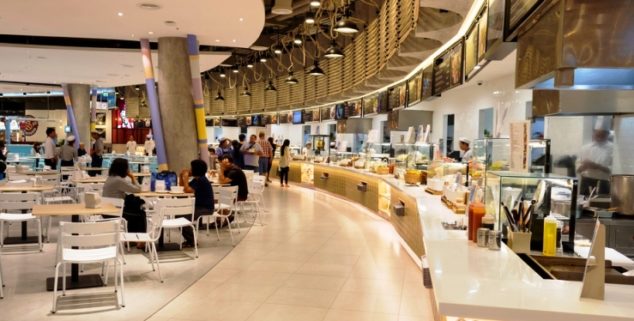Opinion
‘FAST recovery’ plan would cripple franchise businesses
 A food court in a popular shopping mall offering a variety of brands. (Photo, Thiti Sukapan, via Shutterstock)
A food court in a popular shopping mall offering a variety of brands. (Photo, Thiti Sukapan, via Shutterstock)The franchise model, whereby a brand and business are developed by a franchisor and a franchisee pays for the right to distribute products and services based on the model, is a time-honored way of achieving success.
From auto repair (Meineke Car Care Centers) to childcare (Kiddie Academy), the franchise model meets the needs of a community with a known and trusted brand.
Less acknowledged but equally important, local franchisees deliver a large share of economic benefits to their nearby community.
New research shows franchises offer better pay and more opportunity than similarly situated non-franchised businesses.
Local franchisees pay taxes and fees and support countless civic organizations. Franchisees are also known to give women, members of the LGBTQ+ community, new immigrants, and people of color unprecedented business-owning opportunities (60% of California restaurants are owned by people of color).
Nationally, approximately 7.5 million people work for a franchised business. Workers, many of whom are entering the workforce for the first time, can maintain flexible schedules and work part time in order to manage home and family obligations.
In fact, new research shows franchises offer better pay and more opportunity than similarly situated non-franchised businesses; paying 2% to 3% higher wages, offering more than 65% of employee’s health insurance and 76% of franchise employees are offered vacation, holiday and sick leave.
But today, the franchise system in California is under attack. At the forefront is the so-called “FAST Recovery Act.” The legislation (AB 257), which failed to pass the California Assembly in 2021, is expected to be reintroduced.
This legislation is intended to set off a chain reaction that will ultimately dismantle the franchise model in California. Restaurants are just the beginning.
Sponsored by the Service Employees International Union (SEIU), the proposed law is intent on destroying the restaurant franchise community in California.
It sets aside existing labor laws, in favor of a new set of rules developed and enforced by 11 unelected political appointees. It creates a second layer of local unelected councils in cities larger than 200,000 residents. It requires franchisors to strip franchisees of autonomy and reduce franchisees from independent business owners to corporate middle managers.
It also restricts new entrepreneurs who want to be in business for themselves but not by themselves, and benefit from a brand that is already known to the public.
Make no mistake, this legislation is intended to set off a chain reaction that will ultimately dismantle the franchise model in California. Restaurants are just the beginning.
It is not often that legislation proposed by the Chair of Appropriations and backed by union interests cannot pass its house of origin. However, in the 2021 legislative session enough brave legislators became aware of the damage that would be caused in their community.
As we enter a third year of the pandemic, restaurants are among the most at-risk businesses. Food prices are rising, indoor dining is often deemed too risky, and a patchwork of outdoor dining laws have cast even the most obvious dining solutions into doubt. With waves of restaurants closing once again with the rise of Omicron, California policymakers should be supporting, not targeting an industry that contributes to local economies.
Legislative attempts to dismantle the franchise model in California will harm small business owners and the communities in which they operate. Legislators should reject the Fast Recovery Act.
—
Editor’s Note: Matt Haller is the President and CEO of the International Franchise Association.
Want to see more stories like this? Sign up for The Roundup, the free daily newsletter about California politics from the editors of Capitol Weekly. Stay up to date on the news you need to know.
Sign up below, then look for a confirmation email in your inbox.

Leave a Reply